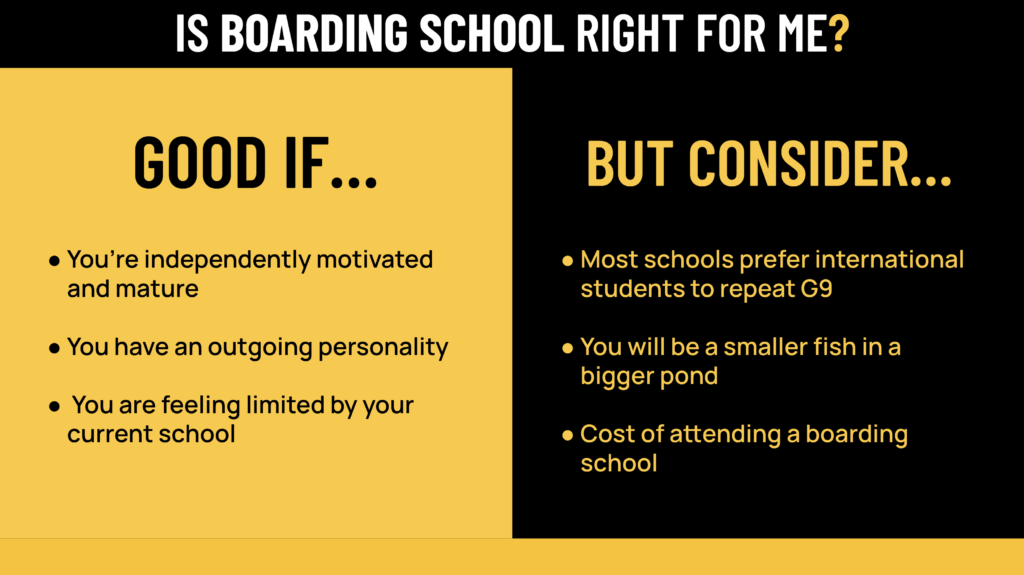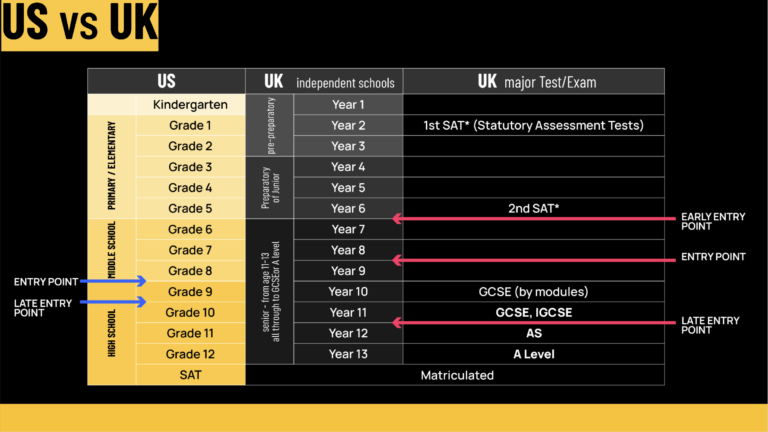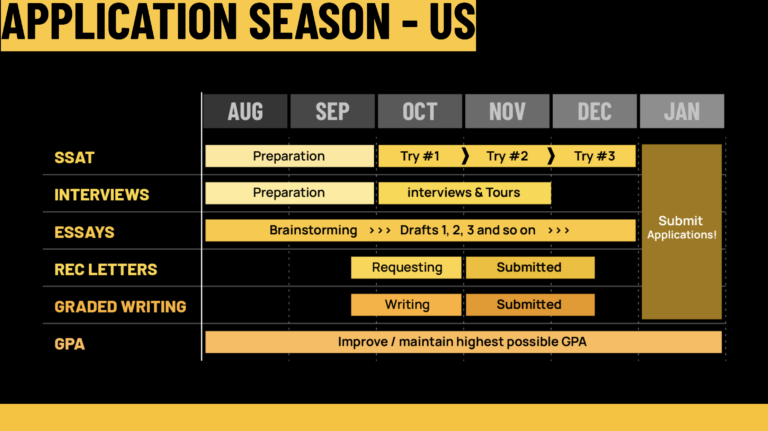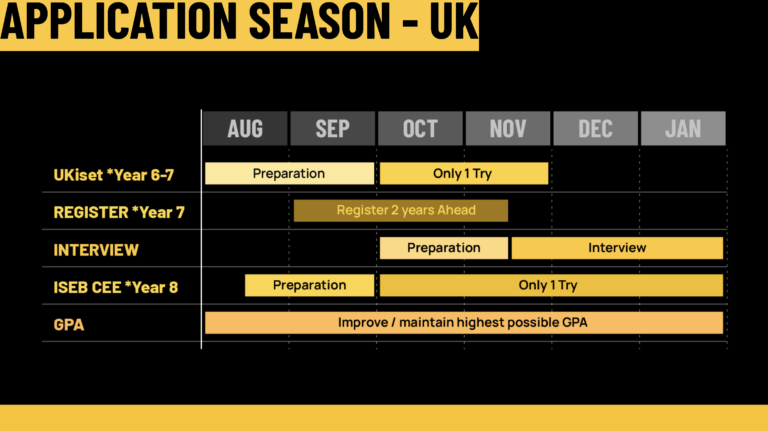US or UK Boarding School?
Which is Right for me?

Boarding schools offer students the opportunity to live and study in an immersive educational environment. They can provide a sense of community and structure, as well as a challenging academic experience. If you’re considering attending a boarding school, you may be wondering which type is right for you. In this article, we’ll explore the differences between US and UK boarding schools, as well as provide tips for applying to boarding schools.
Table of content
-
1. Differences in US and UK Boarding School Systems1. Differences in US and UK Boarding School Systems
-
2. Curriculum, extracurriculars, and culture2. Curriculum, extracurriculars, and culture
-
3. How and when to Apply to Boarding School3. How and when to Apply to Boarding School
-
4. Conclusion4. Conclusion
1. Differences in US and UK Boarding School Systems
The US and UK boarding school systems have some similarities, such as a focus on academics and extracurricular activities. However, there are also some notable differences:

- Age range: In the US, boarding schools typically accept students starting in 9th grade (age 14-15) and continue through 12th grade (age 17-18). In the UK, boarding schools can start as early as year 7 (age 12) and continue through year 13 (age 17-18).
- Structure of the school day: US boarding schools tend to have longer school days, with more classes and less free time. UK boarding schools often have shorter school days with more free time for activities.
- Boarding arrangements: US boarding schools typically have dormitories with individual rooms for students, while UK boarding schools often have houses with shared bedrooms.
2. Curriculum, extracurriculars, and culture
When it comes to the academic programs offered at boarding schools, there are some differences between the US and UK:

- Curriculum: US boarding schools often have a more structured curriculum, with required courses in English, math, science, and social studies. UK boarding schools often offer more flexibility in course selection and allow students to specialize in certain subjects.
- Extracurricular activities: US boarding schools typically offer a wide range of extracurricular activities, from sports to music to theater. UK boarding schools also offer a variety of activities, but may have a stronger focus on traditional sports such as cricket and rugby.
- Culture: US boarding schools often emphasize individualism and leadership, while UK boarding schools may have a more traditional and hierarchical culture.
3. How and when to Apply to Boarding School
If you’re interested in applying to a boarding school, here are some tips to keep in mind:

- Research schools: Look into different boarding schools and consider factors such as location, size, academic programs, and extracurricular activities.
- Prepare for standardized tests: Many boarding schools require students to take standardized tests such as the SSAT or the ISEB. Make sure to prepare for the tests in advance.
- Request recommendations: Boarding schools often require letters of recommendation from teachers, coaches, or other adults who know you well.
- Understand the timeline: Boarding schools in the US and UK have different application deadlines as illustrated in the graphics below:


4. Conclusion
Choosing to attend a boarding school can be an exciting and challenging decision. Whether you’re interested in a US or UK boarding school, it’s important to do your research and understand the differences between the two systems. By following these tips and taking the time to find the right fit, you can set yourself up for success in a boarding school environment. Point Avenue Thailand also offers you excellent and professional admissions consulting services. If you are interested, click here for a free consultation!

